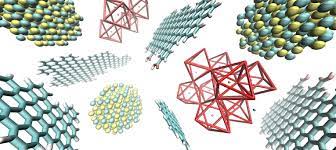Nasal cells offer clues about why COVID-19 is typically milder in children

Severe outcomes from COVID-19 infections are much less common in children than in older adults, and new research suggests that important differences in how the nasal cells of young and elderly people respond to the SARS-CoV-2 virus could explain why children typically experience milder COVID-19 symptoms.
"Despite effective vaccines, age remains the single greatest risk factor for COVID-19 mortality," the authors write. "Children infected with severe acute respiratory syndrome coronavirus 2 (SARS-CoV-2) rarely develop severe disease, while the mortality in infected people over 85 years is currently as high as 1 in 10."
The cell-culture study is published in Nature Microbiology and is based on nasal epithelial cells (NECs) collected from healthy participants, including children (0 to 11 years), younger adults (30 to 50 years), and the elderly (over 70 years).
All study participant samples were collected from the Great Ormond Street Hospital, University College London Hospital, and the Royal Free Hospital, all in the United Kingdom.
Children mount fast interferon response
The study was conducted by culturing the nasal cells of each age-group, which resulted in a dataset of 139,598 cells. The researchers identified 24 distinct epithelial cell types.
Healthy NECs had several age-related differences, including differences in cell-type proportions in healthy control cultures, with a higher abundance of basal or progenitor subtypes in adult versus pediatric cultures. In addition, NEC cultures from older adult donors were thicker than pediatric cultures.
To see how the cultured cells reacted to COVID-19 infections, researchers infected cultures with an early-lineage SARS-CoV-2 isolate.
Cells collected from children had high expression of interferon-stimulated genes and incomplete viral replication. Interferon is one of the first defenses fronted by the body when faced with an infection.
Our research reveals how the type of cells we have in our nose changes with age, and how this affects our ability to combat SARS-CoV-2 infection.
Dr Claire Smith of the Great Ormond Street Institute of Child Health said in a press release from University College London, "Our research reveals how the type of cells we have in our nose changes with age, and how this affects our ability to combat SARS-CoV-2 infection. This could be crucial in developing effective anti-viral treatments tailored to different age groups, especially for the elderly who are at higher risk of severe COVID-19."


 Australia
Australia Argentina
Argentina  Austria
Austria  Brazil
Brazil  Canada
Canada  Germany
Germany  Ireland
Ireland  Italy
Italy  Malaysia
Malaysia  Mexico
Mexico  New Zealand
New Zealand  Poland
Poland  South Africa
South Africa  United Kingdom
United Kingdom  United States
United States 























